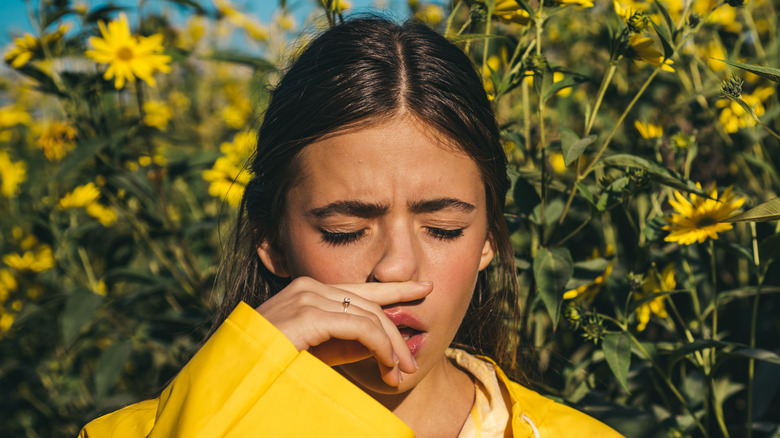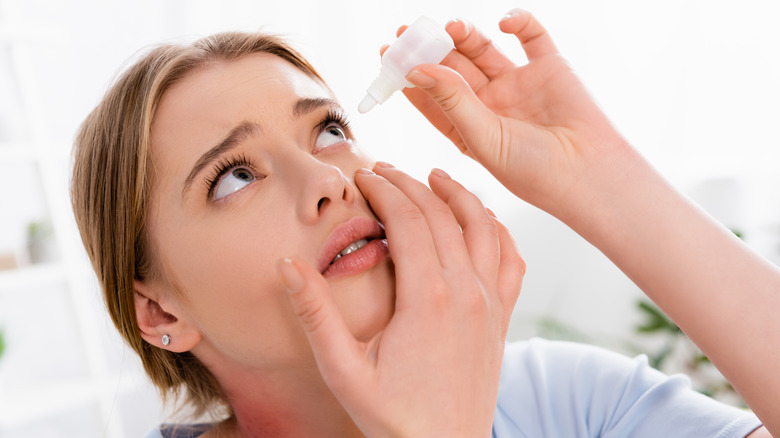Home Remedies To Help You Survive Allergy Season
If you suffer from seasonal allergies, you've probably taken your fair share of over-the-counter allergy medications. After all, allergy season can wreak havoc on your body (via Good Housekeeping). While the weather might be nice in the fall and spring, it can be hard to enjoy the outdoors when you're constantly sniffling and sneezing.
That's why many people turn to antihistamines to help relieve their symptoms. Since antihistamines block your body's histamine response when exposed to allergens, they are highly effective at reducing and alleviating many common allergy symptoms, including itching, swelling, watery eyes, runny nose, and sneezing.
While antihistamines are perfectly safe to take, they can sometimes cause unpleasant side effects in some people. For instance, some antihistamines can cause nausea, headache, drowsiness, and fatigue. Even nasal sprays can have negative side effects and leave your nose feeling dry and irritated. Because of this, many people with seasonal allergies often turn to alternative medicine to help treat their allergies.
How to treat seasonal allergies without medication
Luckily, there are plenty of home remedies you can try to help you get through allergy season. In fact, one of the best ways to reduce or relieve your allergy symptoms is to avoid going outside whenever pollen counts are high, which tends to be around dusk and dawn (via Prevention). However, this isn't always practical or possible. That's why it's a good idea to take a shower and put on a fresh change of clothes after going back indoors. This will help remove any pollen that might be on your clothes or skin.
Another great way to treat your allergies is to rinse your nasal passages with saline solution. While nasal rinses won't completely eliminate your symptoms, they can provide some much-needed relief. "Sinus saline rinses such can increase mucous clearance by about 30% which can be very helpful at flushing out allergens," Dr. Kara Wada, an allergist and immunologist at The Ohio State University Wexner Medical Center, told Prevention. You can also do the same for your eyes. Using eye drops or artificial tears can help rinse any allergens out of your eyes. It can also help soothe them if they are watery or itchy.


